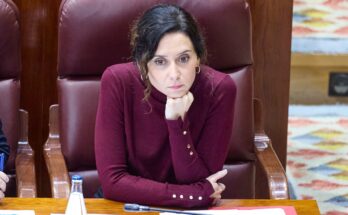Abigail has been working as a doctor at the Ministry of Health (Minsa) for 28 years. He has experienced “so many administrative changes” in all that time that he “no longer remembers how many there have been.” But the ultimatum she received a week ago left her “in shock”: José Humberto Murillo Aguilar, director general of Human Resources of the public health system, gave her until November 25, 2025 to submit to the Comptroller General of the Republic (CGR) a thorough asset declaration, including her properties, vehicles, bank accounts and loans.
“And not only that, we also have to declare the assets and bank accounts of the spouses and the assets in the name of the minor children. It is a desire to control them from all sides”, complains the doctor, who requests anonymity to avoid retaliation from the co-presidential regime of Daniel Ortega and Rosario Murillo. “But we in Nicaragua are like this, what can we do? Nothing. If someone complains, loses their job or ends up in prison… We have to give up”, adds Abigail resignedly.
This doctor from Minsa avoided reporting her assets to the government apparatus under the orders of the two authoritarian leaders, after the Sandinista administration issued a circular last February requiring all state employees to report their personal assets. This is despite the fact that Law 438 or the Probity of Public Employees provides this obligation only for “high-ranking employees who are charged with the administration of public property, or the receipt, control or supervision of public revenue, regardless of its nature or origin”. The legislation, in force since 2002, establishes in article 20 that “every public official of the State must account for his assets before assuming office and after handing over”.
“But I, who am a simple general practitioner, what great legacy can I have, more than what I have gained in all these years of sacrifice, dedication and dedication to Minsa?” says Abigail in conversation with EL PAÍS. Based on this logic, the doctor refused to report her assets, the main value of which is the house in which she lives with her family and for which she finished paying the mortgage only a couple of years ago together with her husband.
The diary Confidential was the first to report on this mandatory circular on the assets of government employees. According to the publication, a good number of workers avoided reporting their personal assets. That said, the institutions have issued this ultimatum which leaves no possibility of further evading the order of the Ortega-Murillo co-presidency.
“Look, I’m telling you clearly, the public worker is a hostage of this system. What happens is that we live under threat and we can’t protest. In other words, they already have us under surveillance day and night, now they spy on our communications, they force us to participate in partisan events and that’s not enough… Now they want to know what we have so that the day they want to purge us they will know that they can take us away, confiscate them,” says Abigail.
An explicit report on wealth
The original circular is explicit about what public employees must report. Workers were given a username and password to access the Comptroller’s website, along with detailed instructions on the information they had to provide: their own information, that of their spouses, and assets registered in the name of their minor children.
As regards properties, they had to report the license plate, the sheet and volume of titles in which they were registered, as well as the data of any vehicle they owned. They also had to report all bank account numbers – including payroll account – and current loan reference numbers.
Although the circular does not indicate any penalty for failure to declare assets, Abigail takes it for granted: “Disobedience entails punishment”, continues the doctor, very indignant at the ultimatum. “Those who oppose automatically put an opposition label on their forehead and we all know what that means,” he adds.
According to former judicial official Yader Morazán, the generalized asset declaration is incorporated into the “militant dossier” that all Sandinista followers compile, becoming another tool of “espionage” and “repression” used by the regime to monitor its officials. A surveillance task carried out by the Sandinista Leadership Councils (CLS) in the institutions, that is, a sort of party body that monitors behaviors considered contrary to Ortega-Murillo.
Morazán recalls that, since late 2023, the regime forced all state employees and Sandinista Front militants to fill out a “single registration form” that requested personal and contact information, as well as data on deceased relatives, a level of intrusion that many considered excessive.
This form also required detailing all social media accounts: Facebook, Twitter (today For Morazán this new request is integrated into a broader strategy: “This latest phase of repression is based on assets. The regime has persecuted the assets of NGOs, political dissidents and opponents. Now they threaten public employees who, if they make a false move, will target your assets or those of your family”, underlines the exiled jurist.



